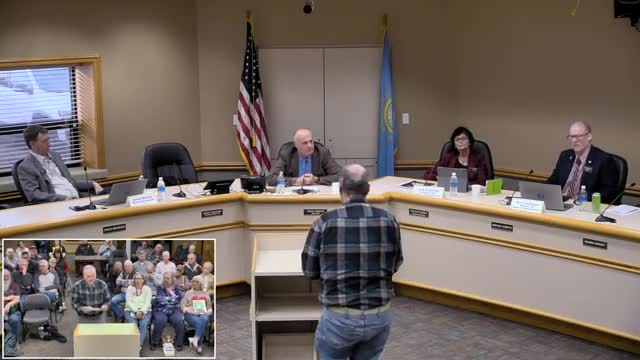Carbon pipeline and eminent‑domain debate surfaces at Huron forum; lawmakers split on regulatory approach
Get AI-powered insights, summaries, and transcripts
Subscribe
Summary
Residents at a Huron forum raised concerns about Summit Carbon Solutions’ proposed CO2 pipeline and the use of eminent domain; legislators described competing considerations — economic competitiveness for ethanol producers, safety and landowner rights — and referenced pending bills that would limit eminent domain.
HURON, S.D. — Questions about Summit Carbon Solutions’ proposed carbon‑dioxide pipeline and the use of eminent domain drew sustained discussion at a Huron Chamber forum, where residents and legislators debated safety, economic incentives and whether the state should change eminent‑domain rules.
Kevin Schultz, a Huron resident, summarized technical and fiscal points he had prepared and asked why the company was pursuing the pipeline and whether the project’s national grant incentives justified the local impacts. He told legislators the federal Inflation Reduction Act and other programs create grant opportunities for large commercial CO2 pipelines and suggested the project’s scale would have a small global impact relative to the incentives.
Senator Wheeler answered that his role is to set fair regulatory rules rather than to determine environmental policy set by the federal government. He said South Dakota must balance regulatory treatment of this proposed CO2 pipeline against other private pipelines and infrastructure used for rail, oil and natural gas. “We are in a marketplace with other states for the ethanol industry,” Wheeler said; singling out one pipeline could put South Dakota ethanol plants at a disadvantage compared with facilities in nearby states that can use pipeline services.
Nut graf: The forum highlighted two competing frames: opponents pointed to safety, water use and eminent‑domain concerns; supporters and some legislators argued the pipeline is an infrastructure issue tied to the competitiveness of ethanol producers and existing federal incentives. Lawmakers described pending bills that would restrict eminent domain for CO2 pipelines, and residents urged careful scrutiny of landowner rights and environmental consequences.
At the forum, at least one legislator said they had voted against a bill that would restrict eminent domain for CO2 pipelines (identified earlier in session as House Bill 1052), arguing the change could unintentionally affect roads, water projects and other infrastructure that now use eminent domain sparingly. That legislator noted existing law and past cases and warned altering eminent‑domain rules could have long‑term consequences for multiple project types.
Other comments from attendees raised safety examples from a CO2 pipeline incident in Mississippi and questioned whether CO2‑centric pipelines would in practice be used for oilfield operations (fracking) elsewhere. Legislators said the state’s regulatory approach must consider court precedent, competitive effects for the ethanol industry and technical risk and that committee hearings will continue.
Ending: No legislative action was taken at the forum. Legislators recommended landowners and local communities follow committee hearings and contact their representatives with concerns; they cautioned that state‑level changes to eminent‑domain law would have broad implications beyond this single project.
